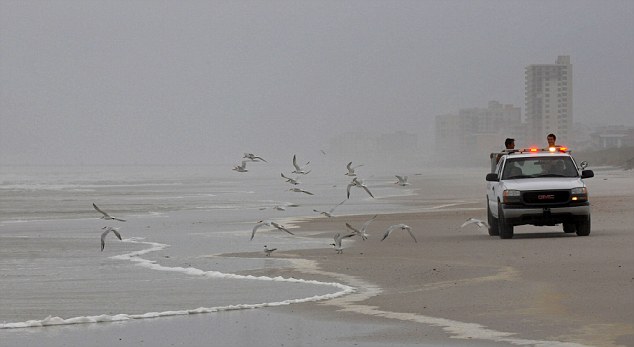Follow us !
Virus responsible for killing almost 800 dolphins found in four whale deaths PHOTO
World
15:00 | 18.11.2013

Virus responsible for killing almost 800 dolphins found in four whale deaths PHOTO
A virus that has killed nearly 800 dolphins has now shown up in four whales, which washed ashore off the East Coast of America.Government marine experts are working to determine whether the virus - cetacean morbillivirus - was responsible for the deaths.If proven, the development would be of major concern to the global whale population, judging by the amount of dolphins the virus continues to kill.Three humpback whales - which are listed as an endangered species - and one pygmy sperm whale have stranded since July 1.They were found on shores between Massachusetts and Georgia, according to the Washington Post.There have been 14 humpback strandings - when dead or dying animals wash ashore - along the East Coast this year, which is double the six-year average of seven.However only four of the whales have been proven carriers of morbillivirus. While morbillivirus is known to infect whales, the National Oceanic and Atmospheric Administration have never reported a death from it.The dolphin epidemic, however, continues to move at an unprecedented rate.Between July 1 and Sunday, 782 have been confirmed dead.That already surpasses the last major morbillivirus outbreak in 1987, when 740 were confirmed dead.The virus causes death by suppressing the dolphin's immune system, leaving them vulnerable to infections such as pneumonia.Despite a similarity to the measles virus, it poses no threat to humans.Sadly officials have said there is nothing they can do to protect dolphins in the wild.Another round of dolphins have recently washed ashore in Florida, as they migrate south to warmer weather.However they have not been included in the virus tally because proper tests have not been conducted.Teri Rowles, director of the marine mammal heath and stranding response program for the National Oceanic and Atmospheric Administration's fisheries service, said it is too early to say whether whales are able to be infected.'There are too many unknowns right now,' she told the Washington Post.'We would be concerned if indeed there is an outbreak of this virus in humpback whales causing clinical disease and mortality.'(dailymail.co.uk)ANN.Az










